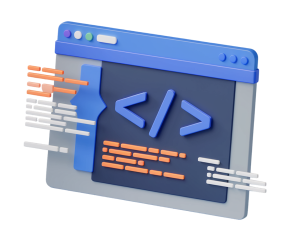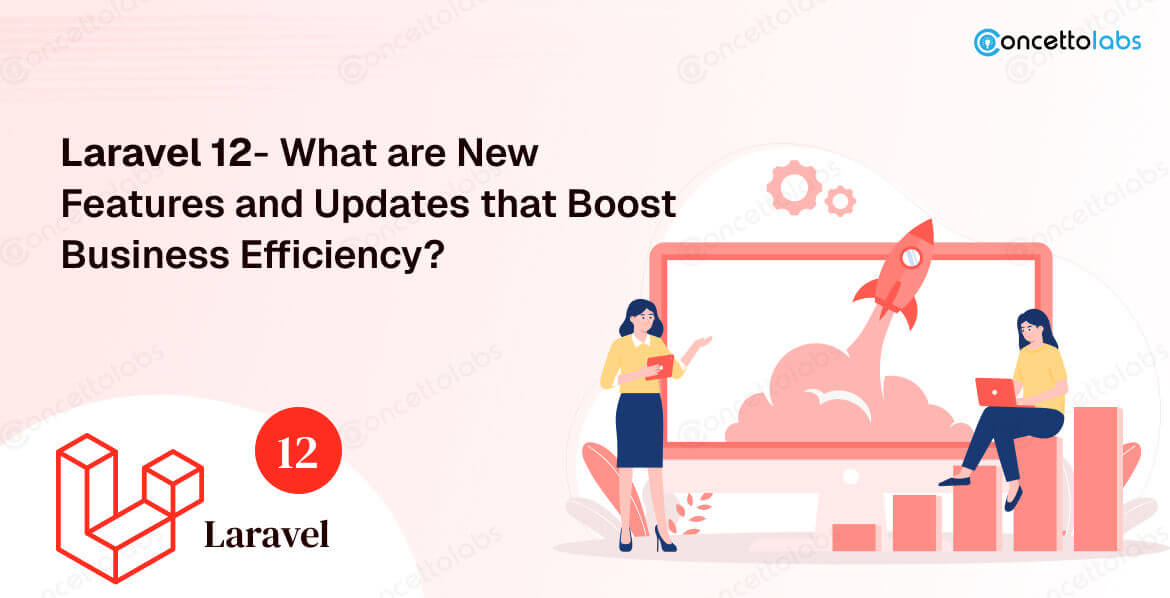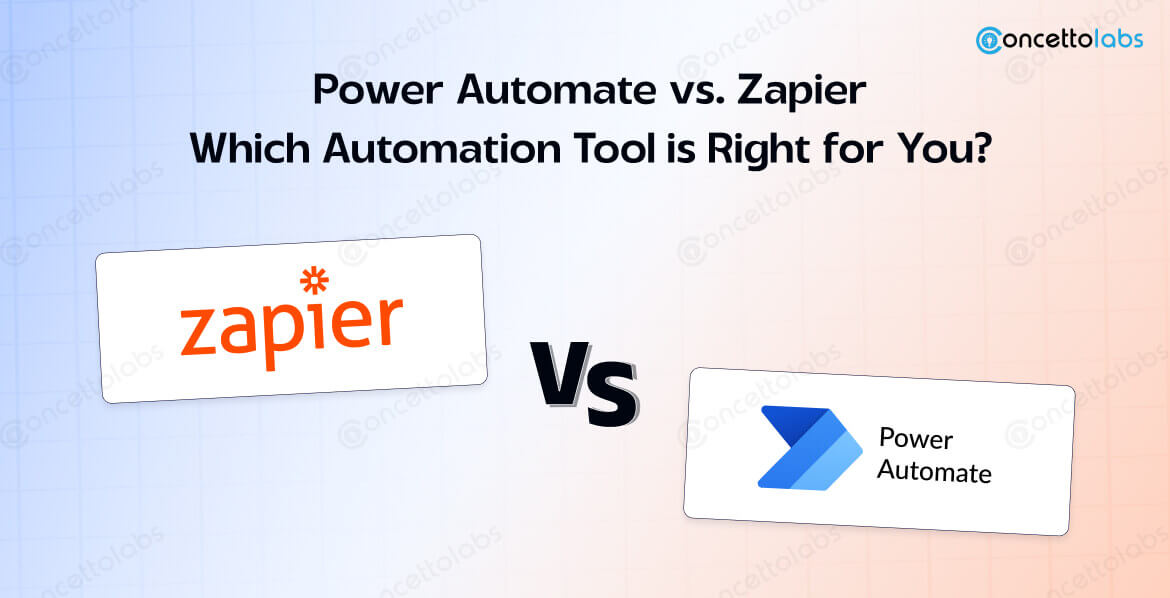
Summary: The blog highlights the potential of the Microsoft Power platform in boosting efficiency, reducing costs, and enhancing decision-making for the construction industry. Construction professionals are encouraged to explore this technology to optimize their operations and stay competitive in this industry. Read on this blog for more details.
Despite being the oldest and fastest-growing sector, the construction industry still faces several difficulties in performing day-to-day duties, such as a lack of a single instrument for asset or inventory management or having to perform daily manual and repetitive administrative tasks.
Automation is advancing quickly, whether it be in workplaces or the construction industry. Repetitive tasks have a significant impact on the budget in addition to the timeline. Businesses are investing in technologies that have the potential to significantly alter their operations.
Additionally, it becomes challenging for businesses to maintain track of the projects and assets in the construction industry because projects take place at various sites and involve the utilization of several assets. There are several other difficulties, including the fact that data is not used to its maximum potential, there is a ton of paperwork, there is no platform for audits and inspections, there are no reports or dashboards to show the status of any projects or their budget or timeline, etc.
How Will Microsoft Power Platform Help the Construction Industry to Face Challenges?
The construction industry is no stranger to challenges such as tight deadlines and the need for seamless collaboration among various stakeholders. To thrive in this demanding environment, construction companies must harness the Power of technology. Construction operations with Microsoft Power platform is a suite of tools that can be a game-changer for, streamlining processes, enhancing productivity, and improving decision-making.
Power-platform offers solutions to help you face today’s difficulties, such as helping you stay ahead of the competition.
- Tedious automation and laborious job
- Asset management
- A single software is handling various audits.
- Enhancing lead generation, conversion, and several other processes with improved insights.
Power Apps, Power BI, and Power Automate make up the bulk of the Microsoft Power platform. Your company can explore integrating and merging the Power platform with several additional services, tools, and platforms to further help it prepare for the digital transition. Both of these options are implemented as a standalone app or as a component of a bigger product site.
In this blog, we will explore how the construction platform with the Microsoft platform will change the work.
What are the Use cases of Microsoft Power Platform for Construction Operations?

Microsoft offers a collection of Power Automate workflow templates that can be applied to straightforward business situations or used as a foundation for more intricate solutions. By utilizing Power Automate, Concetto Labs, a PowerApps Development Company, has assisted various clients in the construction business in achieving their objectives. Here are a few construction-related use cases for power automation.
1. Cost Control
Construction projects often face budget overruns, which can significantly impact profitability. Power platform’s Power BI can help track project expenses in real-time, enabling project managers to identify cost overruns early. By having access to accurate financial data, construction companies can take proactive measures to control costs and enhance project profitability.
2. Safety and Compliance
Safety is the most important factor in the construction sector. Power apps can be used to create safety inspection checklists that workers can perform on mobile devices. If any safety violations are identified, automated alerts can be sent to the responsible parties for immediate action.
3. Project Automation
To automate the request, approval, and deployment of Microsoft Teams sites from a preset set of templates. To request a new team member, users would fill out a form indicating the owners, users, the template to use for setup, and whether it should be secret or public. The workflow would send an approval request to the project manager. If accepted, the team site would be created, provisioned, and configured, and the requestor would receive an email configuring these events.
4. Real-time Analytics
Data is a valuable asset in construction operations with the Microsoft Power platform. Using Power BI, you can create customized dashboards that provide real-time insights into project performance, cost overruns, and schedule delays. These analytics help in proactive decision-making, allowing project managers to identify issues before they escalate and take appropriate actions promptly.
5. Streamlined Project Management
Effective project management is the pillar of any construction project. Microsoft Power platform offers power apps and power automation, which can be customized to create project management applications tailored to particular requirements. These applications can help monitor project status; project managers can access the necessary information on their desktop or mobile devices, ensuring everyone stays on the same page.
6. Integration of AI for Extra Insights
Your company can benefit from some AI and ML capabilities by implementing a power platform. With the aid of an easy-to-use interface, an AI builder linked with the PowerApps development can easily assist in streamlining tasks involving API models, such as prediction, form processing, object detection, category categorization, and entity extraction. Using predictive analysis, you can also check past month revenue trends and forecast future month revenue trends.
7. Enhanced Document Management
Managing various documents, from blueprints to contracts, can be a difficult task. Power Platforms’ Power Apps can be used to create a centralized document management system. Integration with Microsoft SharePoint ensures that documents are accessible to authorized users, which reduces the risk of data loss and enhances document version control.
8. Efficient Resource Allocation
Resource allocation is a critical factor in construction management. The power platform’s Power Automate can be used to automate resource allocation processes. By integrating with other business systems, such as ERP and CRM, you can optimize resource allocation based on project requirements, employee availability, and equipment availability. This automation reduces the chances of over-allocating or under-allocating resources, saving time and costs.
Conclusion
Microsoft Power platform provides construction companies with a powerful set of tools to streamline operations, enhance collaboration, and make data-driven decisions. By leveraging power apps, power automation, Power BI, and Hire Powerapps Developers, construction companies can transform their operations, enhance efficiency, and deliver projects on time and within budget. It is time for the construction industry to harness the transformative potential of Microsoft Power automate services and pave the way for a more efficient and profitable future.
Develop Success, Innovation, And Efficiency Today With Us!
Contact Us









 Indonesia
Indonesia
 Botswana
Botswana
 USA
USA
 Italy
Italy
 Panama
Panama





 USA
USA UK
UK Saudi Arabia
Saudi Arabia Norway
Norway India
India Australia
Australia